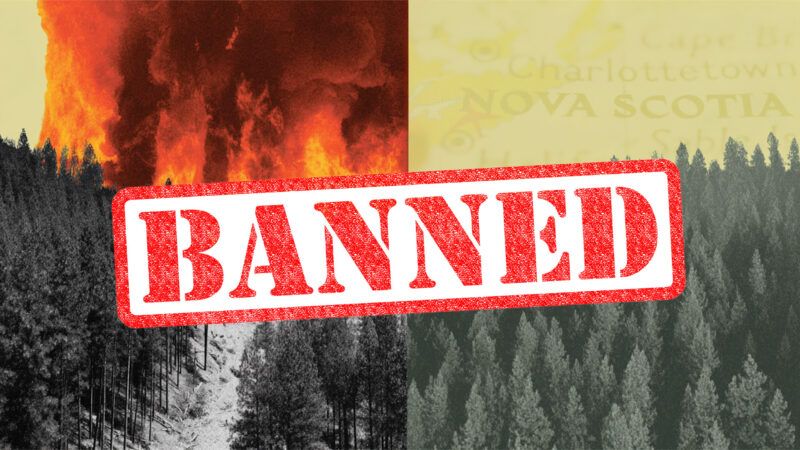Nova Scotia Bans Everyone From Hiking in the Woods Until October
The province says this will prevent forest fires. Those who violate the ban will face a $25,000 fine.

This summer, outdoor enthusiasts in Nova Scotia face a difficult decision: stay out of the woods or face a $25,000 fine.
On August 5, Nova Scotia Premier Tim Houston implemented a ban on "hiking, camping, fishing and use of vehicles such as ATVs in the woods due to an elevated wildfire risk," reported the CBC. Camping in campgrounds is still allowed, but trail systems are off limits, and people who work outdoors, such as miners, need to obtain permits and work mostly at night to reduce fire risk, according to the CBC. Under the ban, "private landowners are free to use their own properties," but guests are not allowed to use wooded areas on the land, per Houston's office. Anyone found violating these rules will face a $25,000 fine.
Nova Scotia has had an active wildfire season. In 2025, the province has seen 139 wildfires—22 in the last week—which have burned over 8,000 acres of land. One fire, which was likely caused by lightning, has resulted in an evacuation order for parts of Nova Scotia's Annapolis County. Unless weather conditions change, the ban will remain in place until October 15.
Scott Tingley, manager of forest protection with the province's Department of Natural Resources, told the CBC that most wildfires in Nova Scotia are human-caused. "That's why we can't run the risk of having people in the woods, because when people are in the woods, even if they don't intend to, we will have fires," he said.
Nova Scotians have pushed back on the directive. Many say it violates the Canadian Charter of Rights and Freedoms by infringing upon their right to freely associate within the country as Canadian citizens.
Canadian Constitution Foundation (CCF) Litigation Director Christine Van Geyn described the ban as an example of weaponized safety. "Nova Scotia's forest ban is overkill and it's deja vu," she said. "It's happening now because the government got away with it last time." In 2001, 2016, and 2023, wildfires led the province to implement bans on outdoor activities. (Notably, the 2023 restrictions were only implemented for about a week, whereas the August 5 ban remains in place as of this writing.)
"This is a classic example of safetyism: a mentality where risk becomes an excuse for control, not communication. Once the government sees that overreach is workable, it's replayed every few years," Van Geyn said.
In protest, Jeff Evely, a retired Canadian veteran and former candidate of the People's Party of Canada, posted a video of himself on X intentionally violating the ban and receiving a $28,872.50 fine. Evely said he wanted to receive the fine to challenge the order in court. The Justice Centre for Constitutional Freedoms has agreed to represent him.
In response to the ban, the CCF announced it had sent a letter to Houston, arguing that the "sweeping ban unnecessarily and disproportionately restricts responsible outdoor recreation that has zero fire risk." The CCF has also formed an online petition urging Houston to rescind the ban.
Julissa Stewart, a resident of Louisdale, Nova Scotia, told the CBC, "It's one thing for somebody to go outside and light up a cigarette and throw a butt on the ground. It's another thing for somebody to want to take a hike in the woods…To put a ban on everything going into the woods…that's extreme overreach. I think that is overstepping on mobility rights."
The ban might save some lives, but instead of letting Canadians make their own decisions while communicating fire risks, the government has decided it's better to force people inside—even if doing so comes at the expense of one's freedom.


Show Comments (39)